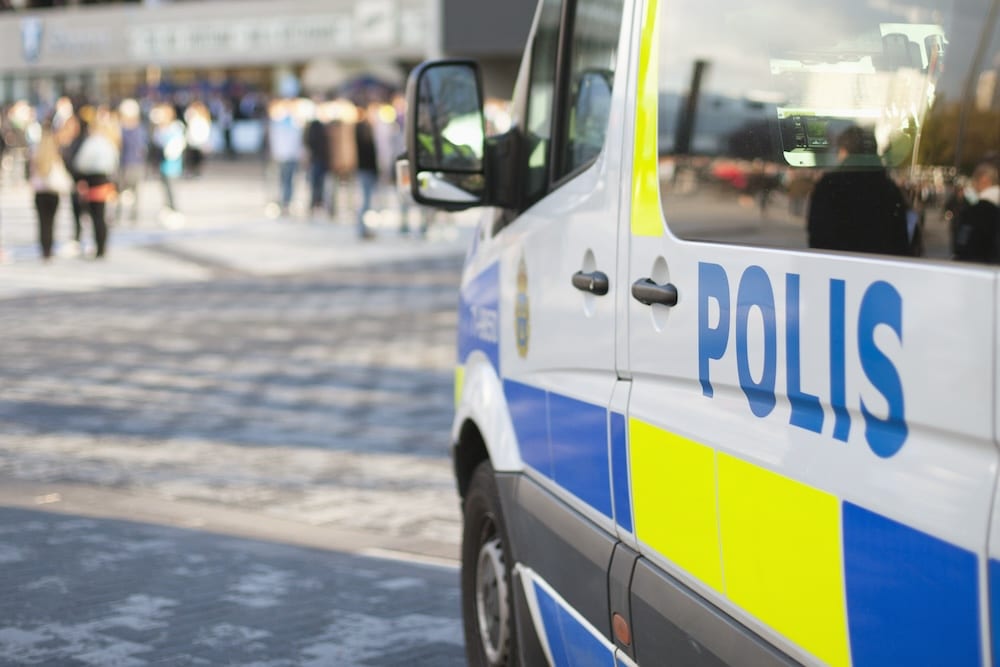
The Swedish police are now allowed to instate stop and search zones for shorter periods. Within the zones, they’re allowed to search people without any criminal suspicion. Previously, the police were only allowed to search people when there was a clear suspicion that the person in question was carrying any sort of weapon. But now, the police have been given greater powers within these specific zones.
The stop and search zones can only be instated by the police if there’s a significant risk that a shooting or explosion could take place in a specific area. The police also have to make the assessment that it’s of particular importance that instating stop and search zones could prevent more shootings and explosions. According to law, these requirements have to be fulfilled in order to instate a stop and search zone.
The stop and search zones can only be instated for a maximum of two weeks. However it’s possible to request that the zone be extended for a longer period of time. The police have the right to search people and search vehicles without criminal suspicion within the zone. They’re also allowed to search children within the zones. When searching, the police are only allowed to do so outside of ones clothes. An example of when the police could instate a stop and search zone is if there have been a shooting or explosion in an area and the police assess that more shootings and explosions could take place as an act of revenge.
What does research about stop and search zones say?
There are no studies that have looked specifically at how stop and search zones affect gang violence and shootings. Although, there is research from England where the conclusion has been that similar scenarios didn’t lead to reduced gang violence. There is some research that shows that it’s effective when the police stop to check people. However, it isn’t possible to say whether that was due to the controls or due to police patrolling the area.
Manne Gerell is an associate professor and university lecturer at Malmö University. He has studied a situation similar to stop and search zones. He looked at areas that the Malmö police had pointed out as areas where they wanted to prevent gang violence. The Malmö police sent officers to check people in those areas. The study showed that crime didn’t decrease, but that the police seized more weapons and more drugs in these areas.
An increased risk of discrimination
There is research that shows that minorities, young people and socio-economically vulnerable people are usually checked by the police to a greater extent. And even if that, to some extent, follows what it looks like in crime statistics, there are also international studies that show that minorities are checked more than their criminality can justify.
Even though the Swedish police say that a certain type of clothing and a certain appearance isn’t enough to stop and search someone, the Swedish Equality Ombudsman (DO) believes that there’s a risk that certain ethnic groups could be discriminated against in within the stop and search zones. Especially since both research and studies show that discriminatory ethnic profiling is already occurring in various police interventions in Sweden today.
The way the Swedish Discrimination Act is designed, you cannot report the police if you’re subjected to a body search and you consider it to be discriminatory. DO has suggested that the Discrimination Act should be revised if the law on stop and search zones is passed. However, it isn’t decided if this is something that will happen in the future.
If you have been discriminated against and you need legal help
If you’ve been discriminated against, it’s important to report it to prevent continued discrimination. Do you need a lawyer’s help with reporting discrimination? Or do you need to talk to a lawyer to get advice regarding your specific situation? Make an appointment with one of our lawyers in the Kliently app today.
Do you need legal help?
We have several lawyers who can help you with this. Book an appointment if you have questions and need counseling, or email us to hire one of the lawyers. We recommend: Sofia Hollström
